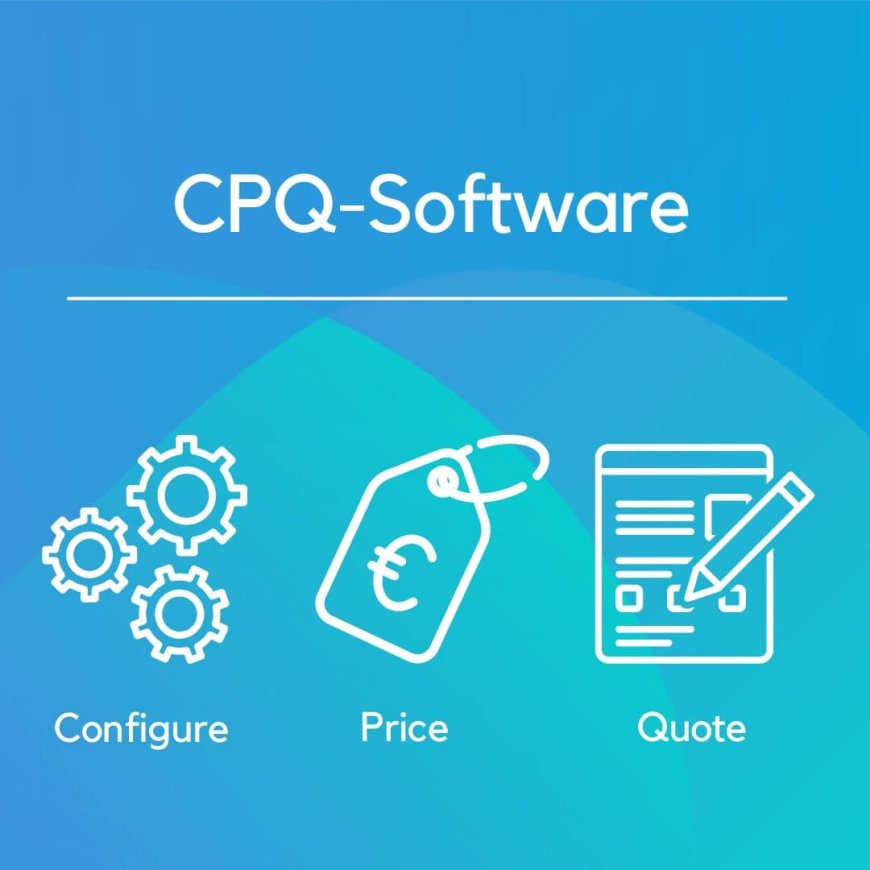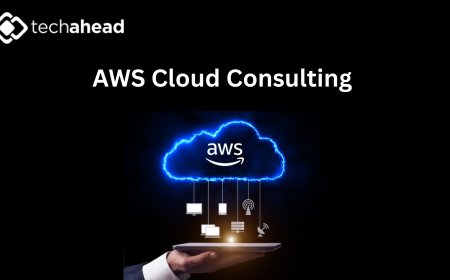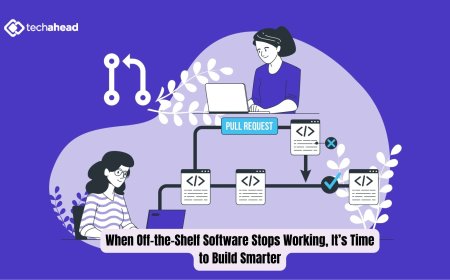Cloud-Based CPQ for Manufacturing: Pros, Cons, and Considerations
Explore the pros, cons, and key considerations of cloud-based CPQ solutions for manufacturing. Learn how they boost efficiency, streamline quoting, and support digital transformation.

In todays fast-paced manufacturing environment, delivering accurate quotes quickly and streamlining the sales process can significantly impact a company's bottom line. Configure, Price, Quote (CPQ) software plays a crucial role in this process, and the shift toward cloud-based CPQ solutions is rapidly gaining momentum. While traditional on-premises systems have served manufacturers for years, cloud-based CPQ platforms offer modern advantages as well as new challenges.
In this blog, we'll dive into the pros, cons, and key considerations of using cloud-based CPQ in the manufacturing industry.
What Is Cloud-Based CPQ?
CPQ software enables sales teams to configure complex products, determine accurate pricing, and generate quotes quickly. A cloud-based CPQ solution is hosted on the providers servers and accessed via the internet. Unlike traditional on-premise CPQ systems, cloud-based platforms do not require local infrastructure, making them more scalable and easier to manage.
Manufacturers are increasingly adopting cloud-based CPQ tools to enhance efficiency, speed, and customer satisfaction but that transition comes with both opportunities and challenges.
The Pros of Cloud-Based CPQ for Manufacturing
Here are the pros of cloud-based cpq for manufacturing:
1. Scalability and Flexibility
Cloud-based CPQ systems allow manufacturers to scale operations up or down with ease. Whether expanding into new markets or adding new product lines, cloud CPQ can accommodate growth without the need for additional hardware or manual updates.
2. Faster Implementation and Updates
On-premise CPQ systems can take months to install and configure. In contrast, cloud CPQ platforms offer faster deployment and automatic updates. Manufacturers benefit from the latest features and security patches without interrupting their operations.
3. Anywhere, Anytime Access
With cloud-based access, sales teams can work from anywhere whether in the office, on the factory floor, or in the field. This boosts collaboration and enables real-time configuration and quoting from mobile devices, laptops, or tablets.
4. Lower Upfront Costs
Cloud CPQ typically operates on a subscription-based pricing model, eliminating the need for large capital expenditures on hardware and servers. This is particularly advantageous for small and mid-sized manufacturers looking to modernize affordably.
5. Improved Accuracy and Efficiency
Automated workflows reduce manual errors in product configurations and pricing, leading to more accurate quotes. This minimizes costly mistakes, enhances customer satisfaction, and accelerates the sales cycle.
6. Enhanced Integration with ERP and CRM Systems
Most cloud-based CPQ tools easily integrate with popular ERP (Enterprise Resource Planning) and CRM (Customer Relationship Management) platforms. This leads to better data consistency, streamlined processes, and a single source of truth for customer and product information.
The Cons of Cloud-Based CPQ for Manufacturing
1. Data Security Concerns
One of the most cited concerns with cloud solutions is data security. Manufacturers must trust third-party providers with sensitive customer and pricing data. Although most vendors follow strict security protocols, the risk of data breaches or unauthorized access remains a concern.
2. Limited Customization
While cloud CPQ platforms are highly configurable, they may offer less customization flexibility than on-premise solutions. Manufacturers with unique processes or specialized product configurations may find the customization options limiting.
3. Internet Dependency
Cloud-based tools require a stable internet connection. In environments where connectivity is inconsistent, downtime could disrupt quoting and sales activities.
4. Subscription Costs Over Time
While the upfront costs are lower, subscription fees can accumulate over time. Depending on usage and the number of users, the total cost of ownership may eventually rival or exceed that of on-premise solutions.
5. Vendor Lock-In
Manufacturers may become reliant on a specific cloud CPQ providers ecosystem. If the provider changes pricing models, discontinues features, or fails to innovate, switching platforms can be complex and expensive.
Key Considerations Before Choosing Cloud-Based CPQ
1. Assess Your Business Needs
Before selecting a cloud CPQ solution, manufacturers should assess their specific requirements, including the complexity of their product offerings, sales channels, and existing IT infrastructure.
2. Evaluate Integration Capabilities
Ensure that the cloud CPQ system can seamlessly integrate with your current ERP, CRM, and PLM (Product Lifecycle Management) systems. Integration is vital for a smooth flow of data and reduced manual entry.
3. Prioritize User Experience
Adoption hinges on how user-friendly the platform is. Look for intuitive interfaces and robust training and support resources to ensure your team can fully leverage the system.
4. Understand Compliance and Data Privacy
Especially for manufacturers operating in multiple regions, the CPQ solution should comply with data privacy regulations like GDPR, CCPA, or industry-specific standards.
5. Plan for Change Management
Implementing a new CPQ system involves change not just technologically, but culturally. Prepare your teams with adequate training, support, and communication to ensure a smooth transition.
6. Vendor Reputation and Support
Not all CPQ providers are created equal. Research vendor reputation, uptime guarantees, customer support quality, and product roadmap before making a long-term commitment.
Real-World Applications of Cloud CPQ in Manufacturing
Use Case 1: Industrial Equipment Manufacturers
Companies producing industrial machinery often face highly complex product configurations. Cloud CPQ allows sales reps to accurately configure machines with multiple options, generate real-time quotes, and reduce back-and-forth with engineering teams.
Use Case 2: Custom Furniture and Modular Products
For manufacturers offering custom furniture, a cloud-based CPQ platform enables customers to visualize different configurations, materials, and pricing in real-time, enhancing the buying experience and reducing quote times from days to minutes.
Use Case 3: OEMs and Tier Suppliers
OEMs and automotive suppliers often have intricate quoting needs involving bulk pricing, part numbers, and supplier collaboration. Cloud CPQ platforms provide centralized visibility and automate complex pricing models for large B2B deals.
Conclusion: Is Cloud CPQ Right for Your Manufacturing Business?
Cloud-based CPQ platforms offer compelling benefits for manufacturers looking to modernize their sales processes, streamline quoting, and increase agility. However, theyre not a one-size-fits-all solution.
Weigh the pros and cons carefully, and consider how a cloud CPQ system aligns with your companys digital transformation goals. For many, the shift to cloud-based CPQ will be a catalyst for greater efficiency, improved customer satisfaction, and competitive advantage.
Still, success hinges on strategic planning, proper integration, and strong vendor partnerships. Done right, cloud CPQ can be a game-changer in the increasingly competitive manufacturing landscape.





























